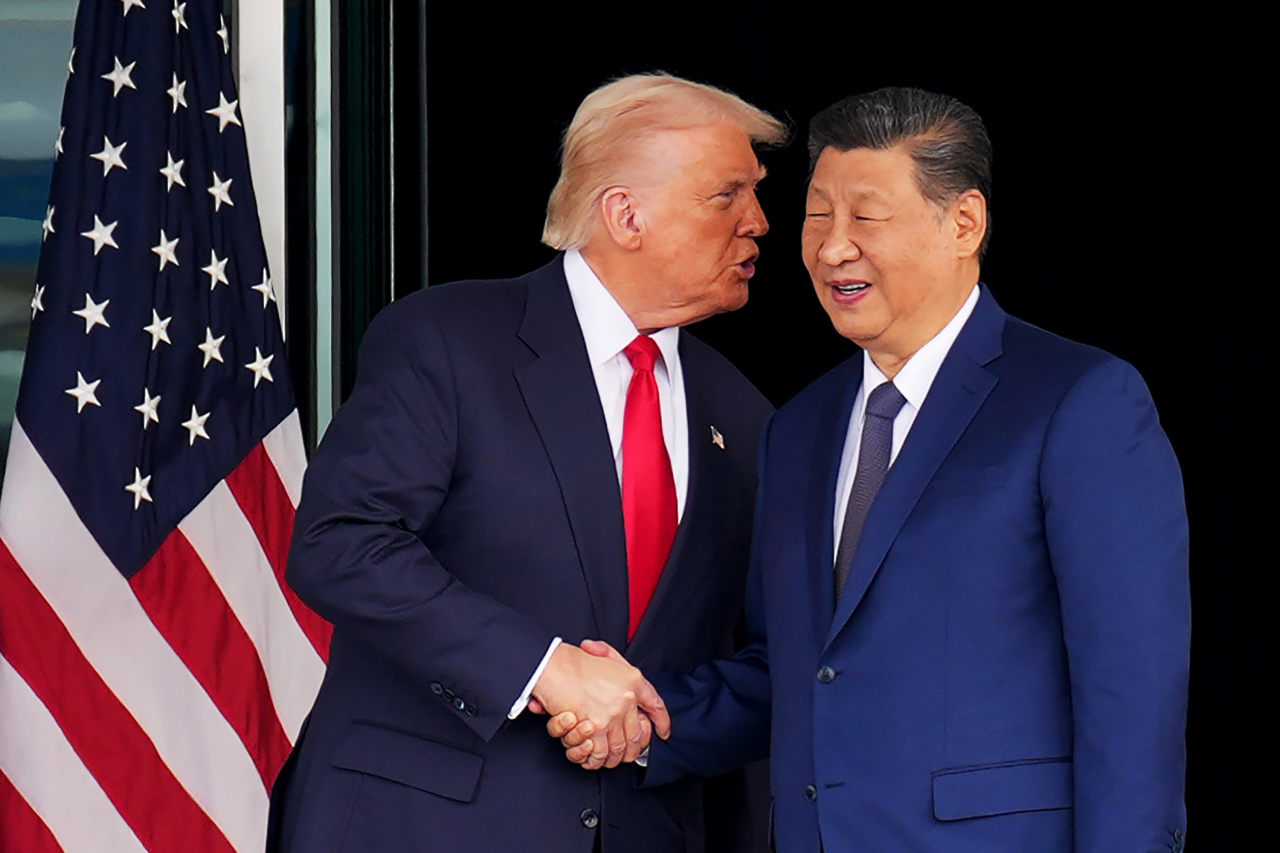World
Evaluating the Impact of Trump’s Trade War with China

The trade conflict initiated by former President Donald Trump against China led to significant tariffs that have shaped economic relations between the two nations. The United States imposed tariffs on approximately $370 billion worth of Chinese goods in an attempt to address trade imbalances and protect American industries. As the conflict evolved, Beijing retaliated with its own tariffs, complicating the economic landscape and raising questions about the effectiveness of such measures.
The tariffs introduced during Trump’s presidency were designed to make Chinese imports more expensive, thereby encouraging consumers to buy American-made products. However, data from various sources indicate that the anticipated benefits for the U.S. economy have not materialized as expected. According to a report by the World Trade Organization (WTO), the overall impact on American industries has been mixed at best, with many sectors suffering from increased costs without a corresponding boost in domestic production.
Retaliation and Economic Consequences
In response to U.S. tariffs, China implemented its own measures, targeting American goods and services. This back-and-forth escalated the conflict, with both nations experiencing economic repercussions. The Chinese government retaliated by imposing tariffs on U.S. agricultural products, which affected farmers and ranchers across the United States. Data from the U.S. Department of Agriculture indicated a significant decline in exports, notably in soybeans and pork, leading to financial strain for many producers.
The trade war also sparked uncertainty in global markets, as companies faced rising costs and shifting supply chains. Many businesses in the U.S. reported challenges adapting to the new trade environment, with some companies even choosing to relocate production overseas to mitigate the impact of tariffs. Research conducted by the National Bureau of Economic Research suggested that job losses in affected sectors outweighed the jobs created by new manufacturing initiatives.
Lessons Learned and Future Implications
As the Biden administration navigates the aftermath of the trade war, it faces the challenge of addressing the economic landscape left in the wake of Trump’s policies. There is an ongoing debate regarding the effectiveness of tariffs in achieving long-term economic goals. While the intention was to bolster American manufacturing and reduce trade deficits, the results indicate that tariffs may not be the optimal solution.
The Biden administration has taken steps to reassess the U.S.-China trade relationship, focusing on multilateral approaches and engaging with allies to address shared concerns about unfair trade practices. Analysts argue that rebuilding relationships with other countries may be crucial in countering China’s economic influence.
In summary, the trade conflict initiated by Donald Trump has led to a complex array of economic consequences for both the United States and China. As policymakers reflect on the lessons from this experience, it becomes evident that a more nuanced approach may be necessary to foster sustainable economic growth and navigate the complexities of international trade. The future of U.S.-China relations hinges on finding a balance that promotes mutual benefits while addressing the underlying issues that sparked the conflict in the first place.
-

 Lifestyle3 months ago
Lifestyle3 months agoLibraries Challenge Rising E-Book Costs Amid Growing Demand
-

 Sports3 months ago
Sports3 months agoTyreek Hill Responds to Tua Tagovailoa’s Comments on Team Dynamics
-

 Sports3 months ago
Sports3 months agoLiverpool Secures Agreement to Sign Young Striker Will Wright
-

 Lifestyle3 months ago
Lifestyle3 months agoSave Your Split Tomatoes: Expert Tips for Gardeners
-

 Lifestyle3 months ago
Lifestyle3 months agoPrincess Beatrice’s Daughter Athena Joins Siblings at London Parade
-

 World3 months ago
World3 months agoWinter Storms Lash New South Wales with Snow, Flood Risks
-

 Science3 months ago
Science3 months agoTrump Administration Moves to Repeal Key Climate Regulation
-

 Business3 months ago
Business3 months agoSoFi Technologies Shares Slip 2% Following Insider Stock Sale
-

 Science2 months ago
Science2 months agoSan Francisco Hosts Unique Contest to Identify “Performative Males”
-

 Science3 months ago
Science3 months agoNew Tool Reveals Link Between Horse Coat Condition and Parasites
-

 Sports3 months ago
Sports3 months agoElon Musk Sculpture Travels From Utah to Yosemite National Park
-

 Science3 months ago
Science3 months agoNew Study Confirms Humans Transported Stonehenge Bluestones









